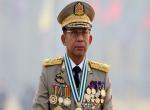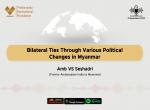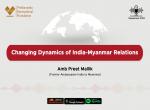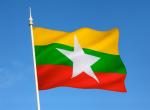Feeble public interest in the elections in Myanmar scheduled for 7 November 2010 has not influenced neighbours of the country from watching keenly the unfolding scenario. The military regime seems to have decided on the exercise in order to gain some legitimacy to its rule. Elections, even though non-inclusive, would stem for some time a popular uprising such as the “Monk Revolution” of 2007. Moreover, Myanmar’s economy, despite the massive Chinese investment in the country, is hobbling: the People’s Republic’s investment in its southern neighbour between April and August 2010 has been two-thirds of its total investment in that country during the last twenty years! Myanmar also needs to emerge out of the economic sanctions and the international isolationism imposed against it.
Through these elections, Senior General Than Shwe’s dispensation is attempting to showcase that it has acceded to the insistence of the opposition for a “return to democracy”, by way of a national bicameral parliament and a regional parliament in each of the seven states and seven regions. Although all state control will continue to vest in the military (the President can appoint elected candidates as chief ministers of the state and regional governments), this development could ultimately lead to a Myanmar more representative of its people’s will. The general election is the fifth step in the State Peace and Development Council’s seven-step “roadmap to democracy”; the sixth being the setting up of elected representatives; the avowed seventh step is the construction of a modern, democratic nation.
However, important political parties like Aung San Suu Kyi’s National League for Democracy (NLD), which had won 392 seats (58.7 per cent) in the 27 May 1990 general elections, are staying away from the polls. The NLD’s Shwegonedine Declaration on 29 April 2009 states that it would contest the elections only if the junta releases all political prisoners, including Aung San, Tin Oo Khun Tun Oo, Sai Nyunt Lwin, Min Ko Naing and Ko Ko Gyi, and takes measures to undertake a review of and amend the 2008 constitution. The current constitution, the opposition says, only serves the junta’s interest. For instance, its Article 59F bars people who are married to foreigners from becoming president: in effect to bar Aung San, who is married to Michael Vaillancourt Aris, a Cuban-born British professor of Buddhism and Tibetology, from this august office. Five new election laws that were announced in March 2010 also are weighted in favour of the Tatmadaw (Myanmar Armed Forces). Thus:
The “democracy exercise” has, therefore, a clear mark of the jackboot. But the legitimacy effort will at least put Myanmar in league with countries like Indonesia. A certain number of seats in the legislature in Djakarta are set aside for the military, but Indonesia can claim to have devolved power with its genre of “guided democracy”.
Analogous to the barrack politicians of post-1975 Bangladesh, the Tatmadaw has hoisted its creation, the Union Solidarity and Development Party (USDP) as the principal contending political party. The USDP is the new avatar of the Tatmadaw’s mass organization, the Union Solidarity and Development Association. Headed by former prime minister Thein Sein, USDP is campaigning nationwide for the general elections, actively utilizing the state apparatus. But the USDP’s role in helping the junta crush democracy – such as its contribution in the infamous Depayin massacre of 30 May 2003, when at least 70 people associated with the NLD were killed by government-sponsored gangs, or when USDP cadres aided the military in cracking down on the “Monk revolution” – are fresh in the public mind.
As against the USDP fielding 1158 candidates for seats in the two houses of parliament and 14 regional assemblies, the National Unity Party (NUP), successor to the Burma Socialist Programme Party, is contending with 980 candidates. NUP, also junta-sponsored, advocates fundamental rights that include political, economic and social justice. NUP, which was crushed in the 1990 general elections (it bagged only 10 seats), also curiously guarantees that “fundamental rights will include freedom of expression, freedom of association, freedom of religion, freedom of livelihood and freedom to settle in any place within the country in accordance with the constitution. Citizens shall be equal before the law and shall have equal opportunities.”
A total of 37 political parties have been approved to take part in the elections. The main parties in the fray, apart from the USDP and NUP, are the National Democratic Force, Shan Nationalities Democratic Party, Union of Myanmar Federation of National Politics, Democratic Party (Myanmar), Rakhine Nationalities Development Party, Kayin People’s Party and 88 Generation Student Youths (Union of Myanmar).
The Elections and India
Prudent diplomacy has led New Delhi to court the military regime. Even the United States has been engaging the Tatmadaw, considering that economic sanctions have not had any significant effect on the generals. For its part, the junta does not seem to be averse to improving ties with US-friendly India and the West as it may want to balance its role vis-à-vis China, a country that has considerable influence in Myanmar. It would seem that at least some members of the junta (Gen. Maung Aye being the most likely, although there are rumours that he may be retired!) are against growing Chinese influence in the country and would not be entirely against playing the India-US card. At any rate, what should be clear to policymakers in New Delhi is that India must continue to do business with Myanmar and clip Chinese influence there.
Evidence suggests that the Middle Kingdom’s image in Myanmar may be waning. The mega Myitsone Dam in Kachin State that is being constructed by the China Power Investment Corporation is said to be a factor in this turn of events. The dam, expected to be operational by 2017, will be the fifteenth-largest hydroelectric power station in the world, 500 feet wide and 500 feet high. It is estimated to provide 3600–6000 megawatts of power for China’s Yunnan Province and China’s eastern coastal areas. The people of Kachin view this as an unfair deal. They are also unhappy that the Chinese concerns are importing Chinese labour rather than employing the local people for the projects. In April 2010, a chain of bomb explosions took place at the dam construction site: the Kachin Independence Organization (KIO) denied its involvement in the matter. A proposed pipeline that would run through Kachin and Rakhine seems to be one more cause of bitterness. Its projected pathway has not been made public, making the general public anxious that they may be relocated or displaced.
Considering that the generals are likely to remain in power, India needs their goodwill and support to contain the insurgency that it faces in the North East, improve bilateral economic and energy ties, and utilize Myanmar as a springboard to enter South East Asia, and consequently contain China’s inroads into the region.
For improvement of ties, Senior General Than Shwe’s 25–29 July 2010 visit to India has been quite successful. The two countries inked five pacts, which included (a) mutual legal assistance in criminal matters; (b) small development projects; (c) science and technology; (d) information cooperation; and (e) a memorandum of understanding (MoU) for the restoration of the Ananda Temple in central Myanmar. India’s EXIM Bank would also grant a (US)$60 million line of credit for railway projects and equipment, and New Delhi promised another $10 million for the purchase of modern agricultural equipment. Indian public energy companies also stated that $1.3 billion would be invested in Myanmar’s gas-field development and pipeline projects. In early 2010 the National Hydro Power Company (NHPC) announced that it would increase investment in Myanmar by $5.6 billion.
Yet another aspect that hinges on Indian interest rests on the ethnic tribes that dot the border between China and Myanmar. It is not disputed that the Chinese have good relations with the ethnic tribes. Groups such as the Wa have also aided Indian insurgent groups, possibly with “contracts” from Chinese ordnance factories such as NORINCO. At the same time, the perception about China among most of the ethnic groups is not what it used to be when they were part of the larger Communist Party of Burma. The Was, for example, feel that China has abandoned them in order to safeguard its own commercial and strategic interests.
The Kokang conflict of August 2009 has also dramatically changed Beijing’s view towards the ethnic groups. The Kokang Special Region, established in 1989 as a self-administering area in the northern Shan State, has mostly a Han Chinese population. It is governed by Chairman Pheung Kya-shin. Kokang has its own army, the Myanmar National Democratic Alliance Army (MNDAA, also known as Mong La), with about 1500 soldiers. The junta has had a cease-fire with most of the region’s ethnic groups since 1989. Since 2008, however, the junta has proposed that the ethnic armies be assimilated into the Tatmadaw and converted into “border guards”; most of the ethnic armies have opposed this, viewing this as a move to disarm and weaken them.
On 8 August 2009 the junta military moved into the region for a raid on a gun factory suspected of being a drug front and on Pheung’s home. No shots were fired in this standoff, but it triggered a mass exodus of locals. On 27 August, the MNDAA opened fire on junta troops outside the city; the United Wa State Army, Burma’s largest ethnic military force, was also involved in the fighting, besides Kachin and nine other ethnic groups. By late 29 August, Kokang fighters, outnumbered by junta troops, fled and surrendered to the Chinese. The United Nations High Commissioner for Refugees (UNHCR) estimates that about 30,000 refugees fled to Yunnan province in China in the entire month of August. Pheung was also rumoured to have fled to China.
Chinese officials were said to be extremely upset over not being forewarned about the offensive on the border. The Burmese Foreign Ministry later apologized to China about the incident, but also ran a story on the Dalai Lama in the government newspaper the Myanmar Times, the first mention of him in the state-controlled Burmese media for twenty years.
Previously, China viewed the ethnic groups primarily as buffers that gave it some leverage over Myanmar; it was able to maintain status quo by using its influence with both sides. But after the Kokang conflict, China seems to believe that it has misjudged Myanmar’s motivation to use force against the ethnic groups and gain control of territory. To that end, China is progressively perceiving the ethnic groups more as a liability. The Kokang offensive also raised China’s apprehension that the Tatmadaw may not always act in China’s interests.
Would it be possible for India to gain influence in this region and thereby secure its interests vis-à-vis Indian insurgent groups? The Kokang incident has demonstrated that Naypyidaw would not hesitate to act against the ethnic tribes. The improvement of ties between India and Myanmar following Senior General Than Shwe’s visit could work out further arrangements, including that of joint operations in areas that are currently housing various Indian insurgent groups, mostly in Sagaing Division, but with uncorroborated inputs that Manipur’s PLA and ULFA are training in Wa and Kachin parishes. Op Golden Bird of 12 April 1995, a landmark event, could set the example for such a collaboration.
To conclude: although the November elections are primarily an effort in gaining some legitimacy for the Tatmadaw and their results seem to be foregone, if the junta’s plans fall in place, it will not only be able to effectively manage national concerns but also garner a modicum of international support. Indeed, it could also be the beginning of the end of Myanmar’s current isolationism. Were the junta to return to power it is likelier than not to forge better ties with India. India, due to its own security and strategic concerns, has been supporting the junta, albeit cautiously. India did not raise the issue of restoration of democracy in Myanmar during Senior General Than Shwe’s visit, choosing instead to focus on bilateral ties that would not only address India’s vision as a rising power, but also on a muted policy of containing China’s influence in Myanmar. While a stable neighbourhood with democracy as the chosen vehicle is desirable, the realities cannot be avoided. Even the United States, which opened sanctions against Myanmar, is engaging the generals, realizing that Myanmar’s isolation and China’s robust presence there has only made it more difficult to tackle it. Realpolitik dictates that a policy of engagement with the generals is in the best interest of India’s national security.








Post new comment